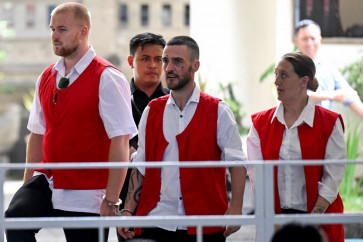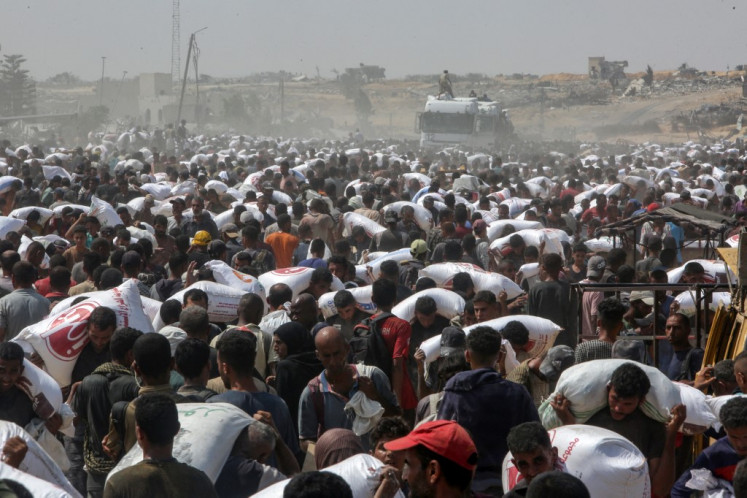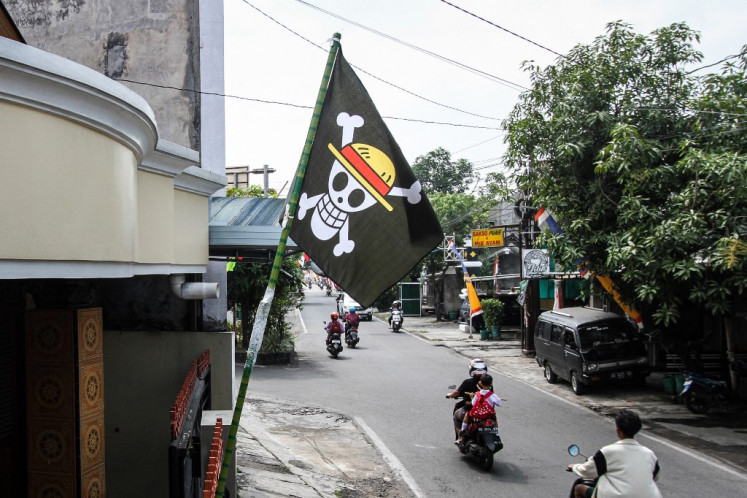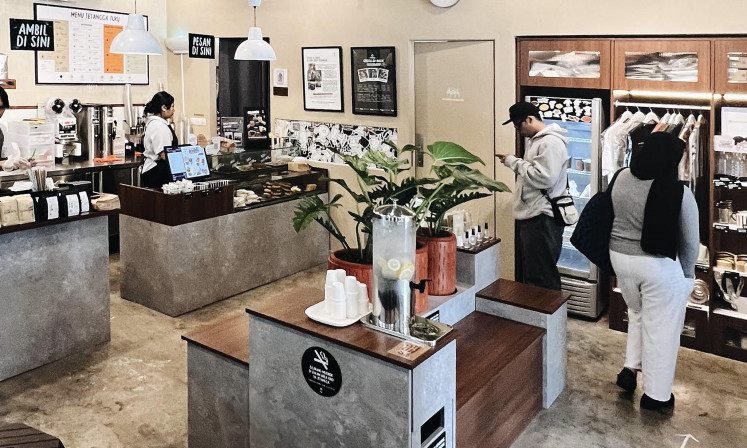Popular Reads
Top Results
Can't find what you're looking for?
View all search resultsPopular Reads
Top Results
Can't find what you're looking for?
View all search resultsLimited at home, palm oil players set sights on Africa
A number of major oil palm plantation firms are reportedly planning to extend their operations into Africa as the government aims to impose limits on the maximum palm plantation area a company can control
Change text size
Gift Premium Articles
to Anyone
A
number of major oil palm plantation firms are reportedly planning to extend their operations into Africa as the government aims to impose limits on the maximum palm plantation area a company can control.
The Agriculture Ministry is revising a 2007 regulation on plantation permits, one of the key clauses of which stipulates that a single entity can control a maximum plantation area of 100,000 hectares, to make more room for smaller players in the business.
'What I've heard is that Sinar Mas and Bakrie are studying the possibility [of opening plantations] in Liberia and Nigeria, respectively,' Indonesian Palm Oil Board (DMSI) chairman Derom Bangun said on Friday at the ministry.
Publicly listed palm oil producers PT Sinar Mas Agro Resources and Technology's CEO Susanto, and PT Bakrie Sumatera Plantations' president directors, Aria Wisena, did not respond to The Jakarta Post about their reported expansion plans on Friday.
According to Derom, Singapore-based Wilmar International began early, with its expansion in 2007 to the Ivory Coast.
Wilmar's factory in the Ivory Coast produced 150,000 tons of crude palm oil (CPO) per year to meet the African market, he said.
He said that several countries in Africa, like Nigeria, Liberia and the Ivory Coast, had favorable climates for oil palm trees to grow, similar to that in Indonesia, but with less rain. As a result, oil palm growers in Africa spend 30 to 40 percent more on production costs than those in Indonesia.
Of all the African countries, Derom said, Nigeria 'has great potential' in terms of climate and land for Indonesia to grow oil palm trees.
He said Nigeria was the biggest palm oil producer in Africa, producing more than 850,000 tons of CPO every year.
Even with that amount, he said Nigeria still needed more palm oil.
'Nigeria has 197 million citizens. If one individual needs 15 kilograms of palm oil per year, that translates to more than 29 million tons of [CPO in annual demand],' Derom said.
Meanwhile, the Ivory Coast produces between 300,000 and 350,000 tons of CPO from its 210,000 hectares of land, or an average of 1.7 to 1.8 tons per hectare per year.
Derom said that Indonesia's average production rate was 3.8 tons of CPO per hectare annually.
The Agriculture Ministry's latest data shows that Indonesia produced 26.5 million tons or 60 percent of total world production in 2012.
The data also shows that Indonesia has over 9 million hectares of oil palm plantations.
In addition to being a favorable destination for Indonesian investment in oil palm plantations, Africa also offers a huge market.
But Derom warned that obstacles remained, with import duties, in Nigeria for example, reaching as high as 35 percent.
'I wish there were more incentives for Indonesian companies to export [palm oil], so they could make larger profits that could be used to open new plantations over there [Nigeria]. It would be more interesting,' he said, adding that he hoped government officials would lobby their Nigerian counterparts to accommodate Indonesian exporters' interests.
In February, the Trade Ministry's director general for export promotions, Gusmadi Bustami, said that Nigeria had offered 4 million hectares of land for Indonesia to use for oil palm or other plantations. He added that Nigeria was looking for partners to develop the country's palm plantation business. (nai)










